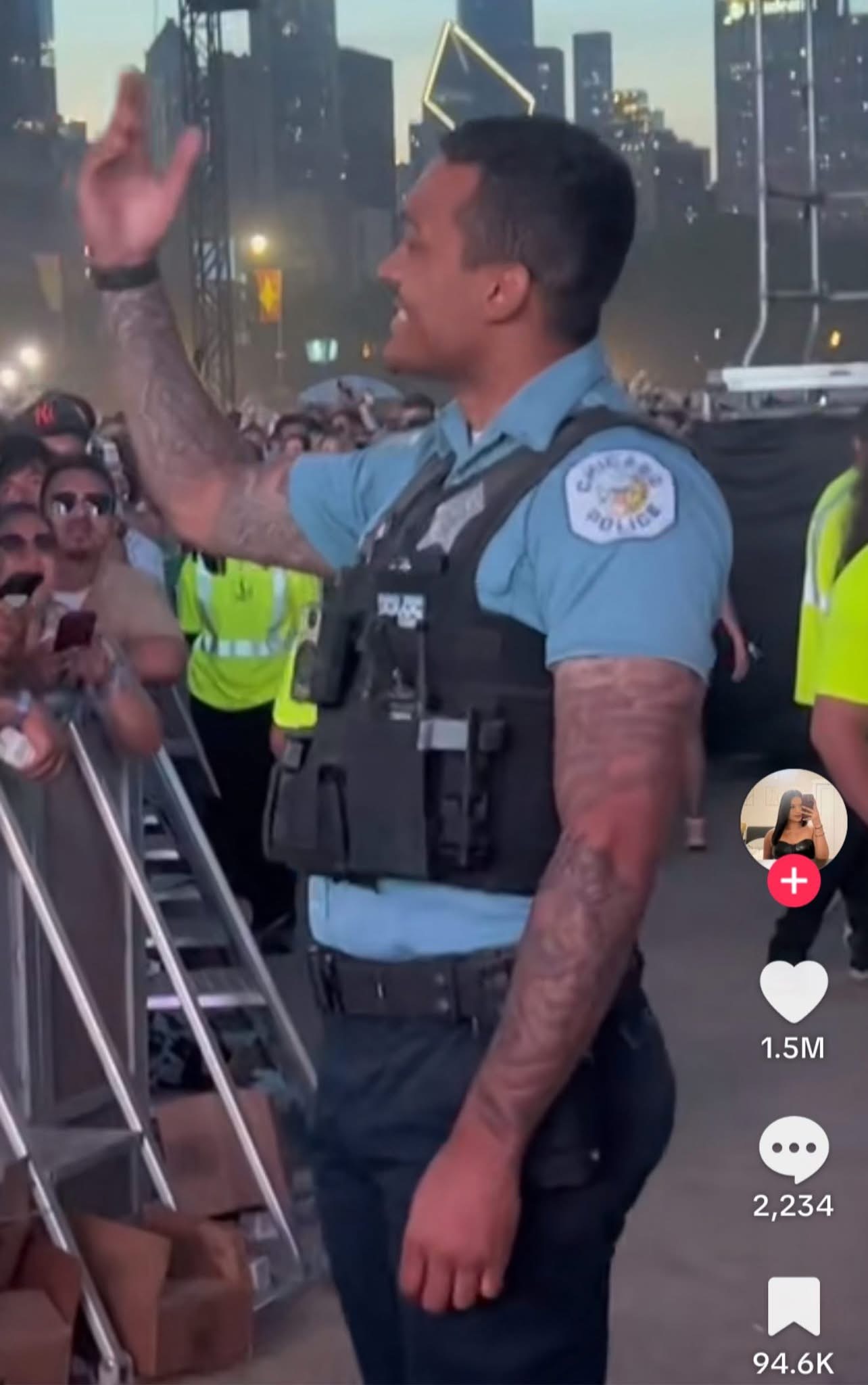Carlos A. Baker: Officer Behind Rivera’s Death Had Long Complaint History and Viral TikTok Fame
The fatal friendly fire shooting of Chicago Police Officer Andrés Mauricio Rivera sent shockwaves through the city and its law enforcement community. At the center of the tragedy is Officer Carlos A. Baker—the CPD officer who mistakenly fired the deadly shot. In the weeks since the incident, scrutiny has mounted over Baker’s past conduct, raising difficult questions about accountability, oversight, and the internal culture of specialized police units.
A Viral Figure in Uniform
Carlos A. Baker was no stranger to the public eye. Before the shooting that killed Officer Rivera, Baker had gained online notoriety after being featured in several TikTok videos filmed at the 2024 Sueños Music Festival in Grant Park. One particular clip showing Baker dancing in uniform went viral, amassing over 23.5 million views, and sparking debate over the appropriateness of uniformed officers participating in online content, even in non-confrontational settings. While some praised the videos for showing a more human side of the police, others criticized them as a distraction from deeper accountability issues within CPD.
A Troubling History of Complaints
What has drawn even more attention in the aftermath of Rivera’s death is Baker’s disciplinary record. According to documents reviewed by the Illinois Answers Project, more than a dozen complaints had been filed against Baker prior to the incident, though none had led to formal disciplinary action. The nature of these complaints has not been fully disclosed, but the volume alone has alarmed watchdogs and community members alike.
Perhaps most disturbing was an incident during Baker’s probationary period, when he was accused of brandishing a gun at a woman he had previously met online. The woman reported that Baker confronted her at a North Side bar while she was out with another man. According to the report, Baker pulled a gun during the confrontation. The case was ultimately closed without action, as the woman later declined to participate in the investigation.
Despite this early red flag, Baker was eventually assigned to a specialized tactical unit in the Gresham District, an elite group within CPD tasked with cracking down on drug and gun violence in areas like Chatham and Gresham. Officers in such units are often given broader latitude and access to more aggressive policing strategies—something critics argue should be contingent upon a spotless record.
A Death That Shattered the Department
Officer Andrés Rivera’s death marked a somber milestone for the department: CPD’s first friendly fire fatality in nearly four decades. Rivera, a rising officer known for his professionalism and deep commitment to community policing, was fatally shot during an operation that was meant to target violent offenders in Chicago’s South Side. The exact details of the shooting remain under investigation, but it has been confirmed that Baker fired the shot that killed Rivera.
The incident has reignited discussions about the dangers of friendly fire, the stress and confusion in tactical operations, and the adequacy of training and communication protocols within the department. But it has also prompted louder calls for transparent disciplinary oversight and stricter internal standards—especially when it comes to officers being placed in specialized units with a history of complaints.
What Comes Next
As the Chicago Police Department and independent oversight bodies continue their investigations, Officer Baker remains under intense public scrutiny. Some within the department argue that Baker, despite his past, should not be judged solely on incidents where no formal charges were brought. Others point to his long complaint record and the previous gun-brandishing allegation as signs that he should never have been allowed to serve in a high-stakes tactical role.
For the family of Officer Rivera, the answers can’t come soon enough. And for a department still reeling from the loss of one of its own—killed not by a suspect, but by a fellow officer—the questions about policy, accountability, and judgment will linger long after the headlines fade.
Officer Carlos A. Baker’s story is now a case study in the risks of unchecked patterns, blurred lines between public image and professional responsibility, and the tragic cost of failure when safeguards do not work as intended.

Leave a Reply